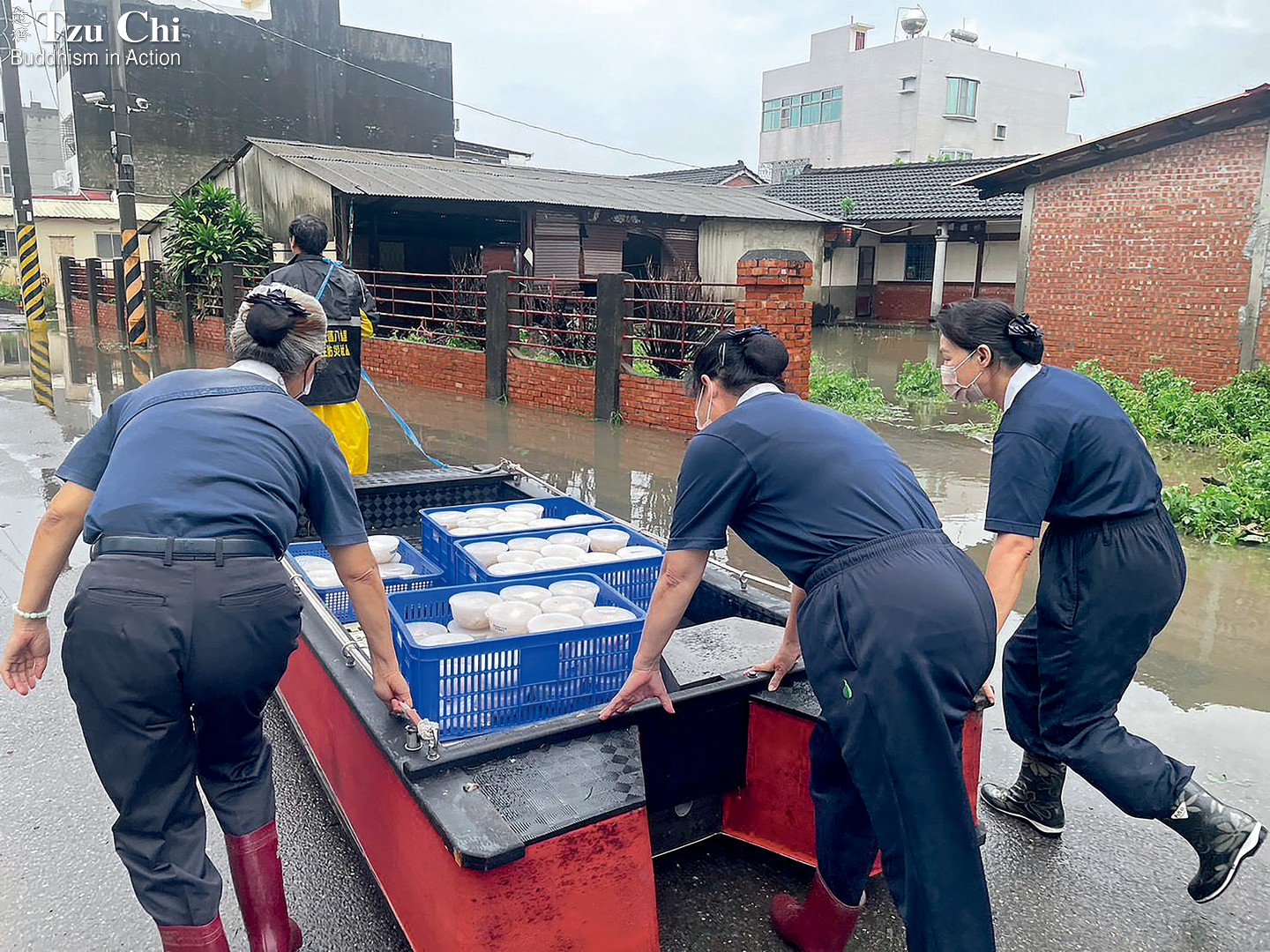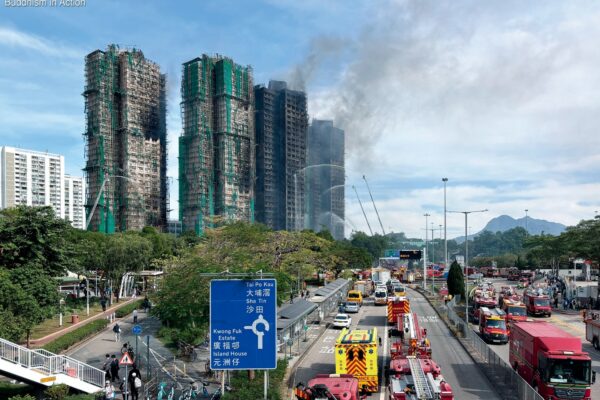Translated by Teresa Chang
The Buddha taught that everything in the world is impermanent and bound to change. Despite this, we often take our daily safety for granted, assuming each day will be the same as the last. Accustomed to a predictable life, we may find it challenging when impermanence suddenly disrupts our everyday existence. Therefore, we should stay vigilant while cherishing every moment with gratitude and appreciating the peace we often fail to notice.
In late July, Typhoon Gaemi unleashed an unusually heavy downpour on Taiwan. As I watched the weather reports, I felt anxious and worried. The typhoon brought significant rainfall, and although the damage wasn’t extremely severe, many areas were still flooded and affected by the storm. Fortunately, Taiwan has many Tzu Chi volunteers, and these living bodhisattvas promptly took action to help.
In the immediate aftermath of Typhoon Gaemi, Tzu Chi volunteers in Kaohsiung delivered over 10,000 loaves of bread to affected households. More volunteers there and in other regions mobilized, preparing and delivering boxed meals to those in need. My heart was full of gratitude for their swift response, but when I learned that some of them were planning to provide care in remote mountainous areas, I was concerned and repeatedly reminded them to prioritize their own safety. The people they aimed to help might still be safe, but those rushing to assist could be putting themselves in unnecessary danger. Mountain roads could be cut off without warning if the rain was heavy, and conditions might be even worse after dark. While sustaining our caring spirit, we must also stay alert and adhere to the principles of safe assistance.
After the worst of the disaster had passed and the floods receded, our volunteers continued to care for affected families, especially those who were disadvantaged. They inspected homes for leaks and damage, arranging for necessary repairs. In some areas, the floodwaters had left so much mud that moving through it was difficult, especially for the elderly and disabled. Seeing the muck and water-damaged furniture was overwhelming for them. They were greatly relieved when Tzu Chi volunteers arrived to help with the cleanup.
Taiwan is prone to natural disasters such as typhoons. Looking back in history, Typhoon Thelma struck Taiwan on July 25, 1977, the same day that Typhoon Gaemi hit this year. I personally witnessed concrete utility poles snapped in half and floodwaters submerging houses, leaving only the roofs visible. In 2006, another typhoon named Kaemi, which shares the same Chinese name as Typhoon Gaemi, also hit Taiwan in late July. However, regardless of the year, month, or day when a typhoon strikes, our volunteers always respond promptly. They distribute boxed meals, deliver necessities, provide emergency cash, and offer comfort to those affected, bringing peace of mind wherever they go. Each typhoon season is treated as a test, with our volunteers continuously assessing how to coordinate relief efforts and resources. Afterwards, they review their strengths and shortcomings, using the experience from each event to enhance and strengthen future responses.
Whenever an unfortunate event occurs, timely relief is crucial to alleviate the suffering of those affected. It is reassuring to see so many people quickly stepping in to provide care and support in areas struck by Typhoon Gaemi, reflecting the widespread compassion in many hearts. This kind of loving care not only benefits those who receive it but also those who give it. Those who give find deep joy and fulfillment in their altruistic actions.
I am grateful to the many real-life bodhisattvas who dedicate themselves to helping others. Good thoughts and deeds lead to the creation of good causes and conditions or good karma, thus resulting in blessings and good fortune. Our world is full of suffering, shaped by the forces of good and evil. When the power of good is strong, peace and health can flourish; if evil prevails, goodness diminishes, and suffering intensifies. We must strive to enhance our good deeds and reduce harmful actions, thereby nurturing harmony and goodness in the world.
Now that the typhoon has passed, I hope everyone continues to seize opportunities to help others, uphold a spirit of giving, and carry this dedication into the future. Let us persist in doing the good we are capable of, spreading love and kindness wherever we go. Don’t think that your efforts are too small to make a difference. Every little bit counts, and when combined, they add up to something significant. When we all come together to do good, our collective effort becomes incredibly powerful.

Volunteers deliver hot meals to a flooded area in Liuying, Tainan, southern Taiwan. Shen Shu-xiang



